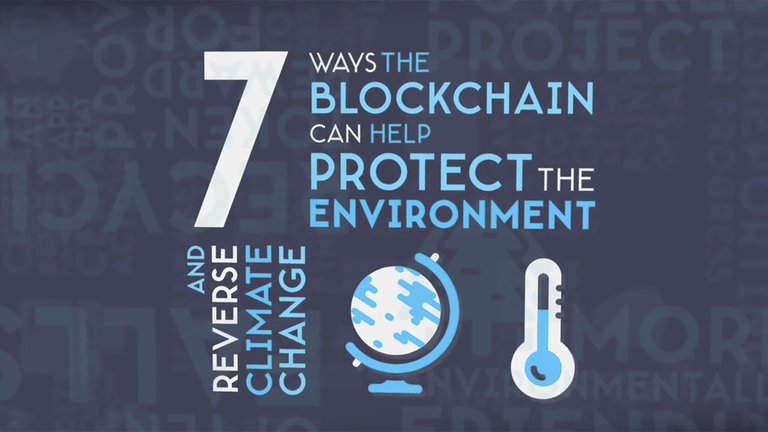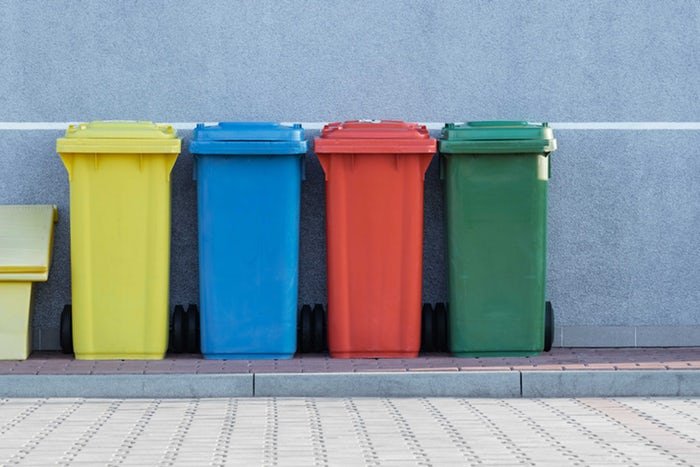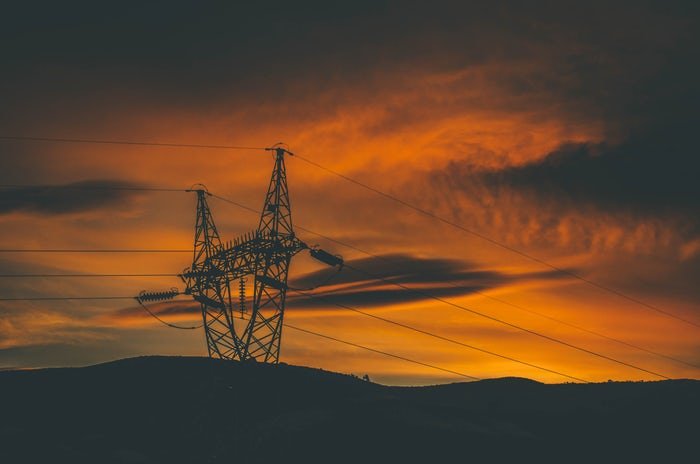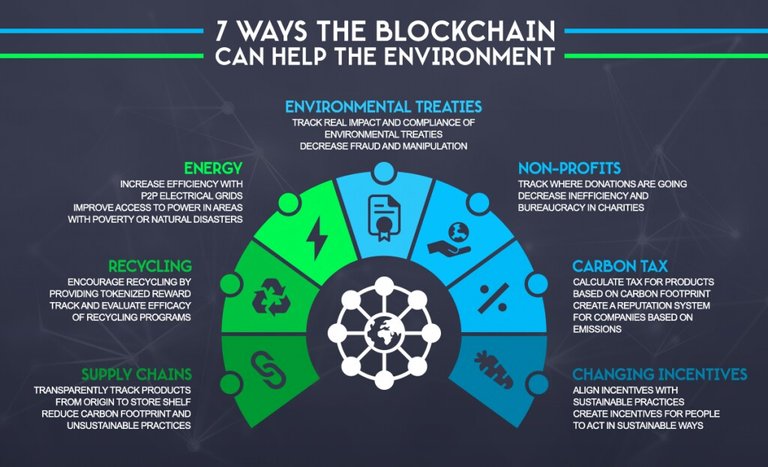
The blockchain is the common database innovation that underlies Bitcoin and Ethereum, and it is set to be even bigger and disrupt numerous businesses in the coming years. It's now getting utilized in managing an account and installments, however many people don't understand that this equivalent innovation can be utilized to take care of the major ecological issues we are confronting today on our planet. If embraced universally, it can even aid stop or turn around environmental change.
As changeless, carefully designed databases that are shared by a network without a centralized or unified proprietor, blockchains are especially intriguing for natural causes. They make it conceivable to track and confirm exchanges and connections without a concentrated expert. This can essentially build straightforwardness, productivity, and responsibility of ecological activities.
What Is The Blockchain?
The blockchain is an open ledger that can store exchange records or some other information. It is possessed by nobody, with a copy of it being put away on numerous PCs around the globe. Anybody can utilize it and help run the system. This frequently evacuates the requirement for agents and enables clients to associate in a distributed manner. It can likewise lessen exchange expenses and increment effectiveness. Since it is disseminated, this sort of system is hard to bring down or degenerate.
Once an information record is made, it can't be changed and remains in the ledger until the end of time. Another information record can be included simply after it is approved by numerous computers. This makes the information reliable without depending on an outsider. The record is anchored with cutting edge cryptography, which makes it hard to alter.
Platforms like Ethereum enable clients to make projects, or dApps (short for decentralized applications) that keep running on the blockchain and have an assortment of employments – not simply money related applications. The projects are executed naturally, and precisely as settled upon by all members.
Open blockchains are straightforward, implying that astounding information is accessible to anybody and is predictable over the system.
Here are some particular sectors and areas the blockchain can positively affect nature.
1. Supply Network Management
The vast majority need to purchase items that are ethically made, however that sort of data is frequently inaccessible and hard to check. An item goes from numerous hands before it gets to the store. It's simple for organizations to lie about how their items are made, what materials and synthetic substances they utilize, where they dump their rubbish, or how decently they treat their representatives.
Blockchains can be utilized to track items from the producer to the shelves and help avert squander, wastefulness, misrepresentation, and unscrupulous practices by making supply chains more straightforward. They can likewise enable shoppers to be better educated of how every item was made and transported so they can settle on more environmentally friendly decisions.
If we're able to track our food, for instance, this would empower purchasers to buy locally made foodstuffs Knowing that it was really developed locally. This would likewise eliminate carbon outflows because of food not transported long distances. Blockchains could guarantee that a fish being sold at a fish advertisement really originated from a practical angler, or check that a pack of espresso truly originated from a fair trade producer.
Foodtrax is a blockchain-controlled dApp being made by the Blockchain Development Company, and it plans to do only that – track food items from its source to the store rack.
Provenace is another blockchain venture that expects to make supply chains more straightforward.
The blockchain can help lessen inefficiency, wastefulness, and misrepresentation by making supply chains more straightforward.
2. Recycling ♻

With the present recycling programs, individuals regularly don't have great motivations to partake. The duty regarding running reusing programs regularly falls on each different city, which results in numerous spots not having recycling programs by any stretch of the imagination. It's likewise hard to track and look at the effect of these projects.
A recycling program on the blockchain could empower interest by giving a budgetary reward as a cryptographic token in return for storing recyclables like plastic holders, jars, or jugs. Comparative setups as of now exist in a few places the world over, specifically in Northern Europe.
It would make it simple to straightforwardly track information like volume, cost, and benefit, and to assess the effect of every area, organization, or individual taking an interest in the program.
Social Plastic (otherwise known as Plastic Bank) is an undertaking that is transforming plastic into cash by setting up accumulation focuses in underdeveloped nations, where individuals can store utilized plastic in return for money, administrations like telephone charging, or things like cooking fuel. They plan to tidy up the world from plastic waste while mitigating neediness. They are presently dealing with a blockchain-controlled application that will enable individuals to trade plastic for cryptographic tokens.
RecycleToCoin is another blockchain dApp being developed that will empower individuals to restore their utilized plastic compartments in return for a token, through mechanized machines in Europe and around the globe.
A recycling program that utilizes blockchain innovation could empower investment by issuing a tokenized reward to its clients.
3. Energy

Conventional power grids are concentrated, centralized, which can create inefficiencies in energy distribution, like having unused surplus. Also, in parts of the world ravaged by catastrophic events or destitution, controlled blackouts can leave individuals without access to power.
A shared blockchain based vitality framework would lessen the need to transmit power over long distances, which can result in losses en route. It would likewise help decrease the requirement for vitality stockpiling, on the grounds that such exchanging can move power locally from where it's being created in abundance to where it's required.
Transactive Grid is a joint endeavor among ConsenSys and LO3 Energy that is dealing with a blockchain stage that takes care of this issue.
SunContract is a blockchain-based distributed vitality exchanging stage for sunlight based and different renewables.
Power plant establishments are costly and are regularly financed by legislatures of expansive privately owned businesses.
A blockchain-based stage could empower foundations, organizations, and people to get comes back from straightforwardly putting resources into sustainable power source establishments in their general vicinity and around the globe.
EcoChain is a blockchain dApp being produced, which plans to do only that – make a stage for individuals to put resources into renewables and get an arrival on their speculation.
ElectricChain is another blockchain stage with a few applications like SolarCoin, which plans to boost sun powered establishments around the globe.
A P2P vitality network utilizing blockchain innovation could decrease power outages amid cataclysmic events.
4. Environmental Treaties

In can be hard to track the real effect of environmental treaties, and now and again there isn't a motivator for governments or companies to stay faithful to their obligations. Extortion and control of information are additionally issues here.
Blockchain could discourage organizations and governments from backing out on their natural guarantees or distorting their advancement, in light of the fact that the innovation would permit to straightforwardly track critical ecological information, and show whether responsibilities were met. Once the information is gone into general society blockchain, it remains there until the end of time.
Authoritative archive stockpiling on the blockchain could eliminate misrepresentation and control, for instance inside the worldwide carbon credits scheme. Around 979 million is spent every year on administrate this framework alone. If you have a permanent record of credits purchased and sold, at that point there is minimal possibility of enterprises and governments looking the other way when carbon credits are bribed or sold unlawfully.
Blockchain innovation could help increase consistence to ecological settlements through information straightforwardness.
5. Non-profit

When you give to an ecological charity, it very well may be hard to track where the cash goes or how it is spent. Administration, debasement, and wastefulness are as yet normal in the philanthropy space.
Blockchain innovation can guarantee that cash proposed to be a reward for protection, or an installment to a particular reason, does not vanish into unintended pockets through bureaucratic mazes. Blockchain-based cash could even be discharged consequently to the right gatherings in light of meeting particular ecological targets.
Blockchains empower assets to be exchanged without financial balances — which is gainful to individuals in nations that lack banking infrastructure. This implies it's conceivable to send cash straightforwardly to the general population who require it without experiencing a mind boggling web of go betweens or a brought together specialist.
Bitgive and Bithope are two philanthropies working with digital forms of money.
Blockchain innovation could help track that your altruistic gifts go where expected.
6. Carbon Tax

In the present framework, the natural effect of every item is hard to decide, and its carbon impression isn't considered into the cost. This implies there is minimal motivator for shoppers to purchase items with a low carbon footprint, and minimal impetus for organizations to offer such items.
Tracking the carbon footprint of every item utilizing the blockchain would shield this information from altering, and it very well may be utilized to decide the measure of carbon duty to be charged on at the purpose of offer. On the off chance that an item with a substantial carbon footprint is more costly to purchase, this would urge purchasers to purchase items that are all the more naturally amicable, and would subsequently urge organizations to rebuild their supply chains to take care of the demand for such items.
A blockchain-based reputation framework could likewise give each organization and item a score in light of the carbon impression of the items they offer. This would make producing more straightforward, and demoralize inefficient and naturally threatening practices.
Blockchain innovation could be utilized to execute a carbon duty to encourage stop
7. Changing Incentives.

In a universe of complexity, it very well may be troublesome for people or organizations to see the immediate impacts of their activities. In this manner, the impetuses for acting in an ecologically manageable way aren't in every case clear, particularly temporarily.
Blockchain innovation can encourage both the people and organizations to see the genuine effect of their activities and boost them to take the activities that are advantageous to nature. The blockchain can be utilized to straightforwardly track an assortment of information like the carbon footprint of every item, the ozone depleting substance or waste discharges of a production line, or an organization's general history of consistence to natural measures. Organizations and people can be boosted to act in an ecologically manageable route through the accessibility of data, tokenized credits being issued for taking certain activities, or blockchain-based notoriety frameworks.
These new motivations could totally change the drivers of our economy, and serve as an advantage us, as well as the future ages living on our planet.

Congratulations @iameme! You have completed the following achievement on the Steem blockchain and have been rewarded with new badge(s) :
Click on the badge to view your Board of Honor.
If you no longer want to receive notifications, reply to this comment with the word
STOPDo not miss the last post from @steemitboard: